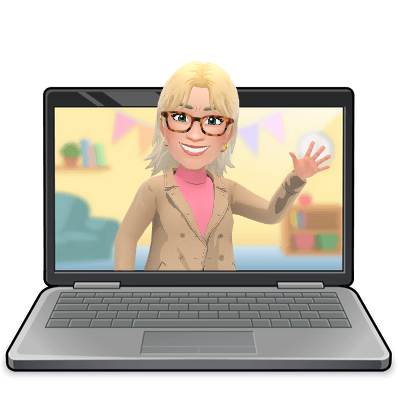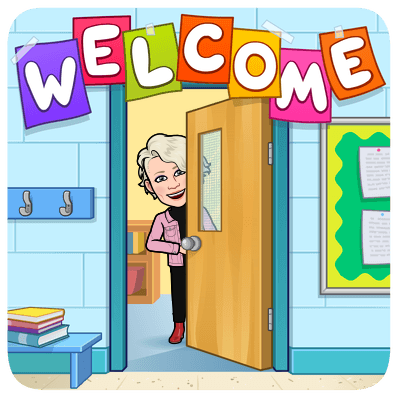[If you don’t enjoy getting information from reading, scroll right on down to the post script for a link to WATCH THIS BLOG POST instead of reading it.]
As you might know, I hold a doctorate in voice pedagogy (yeah. that explains that whole ‘dr’ thing, right?). And, as you might imagine, getting that degree involved some reading. Correction: A LOT OF READING. (In fact? My thesis was built around terminology and, specifically, the terminology in voice pedagogy, speech-language pathology, and laryngology textbooks so, you know, I read soooo maaaanyyyy text booksssss.)
So why would *I*, of ALL people, suggest that you might consider getting your voiceped learning on without opening a voiceped textbook?
Because:
a) while there is this pervasive *should* when it comes to learning from printed materials, not everyone learns well from reading, and b) I, personally, PREFER to learn in other ways.
Without further ado, here are eight ways to get your voiceped learning on without cracking open a text book.:

1. Get Thee to YouTube:
There are so many knowledgeable people out there, who have already read the books, who know what they’re talking about, and who have distilled the info into visually appealing videos; what’s not to love?! Three great examples (just off the top of my head) are, Karyn Lane O’Connor at SingWise, Claudia Friedlander at The Liberated Voice, and Dr Dan’s Voice Essentials. Oh. And all of my Live Office Hours are over on MY YouTube channel too so … if you are an audio-visual learner, who prefers to process information in 10-15 minute chunks, this is may be a smart solution for you.

2. Try Listening:
No time for watching? NO PROBLEM! How about listening to some podcasts? There are SOOOOO MAAAANYYY GOOOOD voiceped podcasts out there! A few of my personal favs are, John Henny’s Intelligent Vocalist Podcast, The Naked Vocalist with Chris Johnson (yeah – that title got your attention, didn’t it?), and, Nikki Loney’s The Full Voice Podcast (full disclosure: I may or may not be a fairly regular guest on this one so, you know: BIAS ALERT).

3. Online Forums:
Okay. I KNOW. Online forums can be a little intense so if it’s not your battle, don’t pick it. However, some of the people who actually write the textbooks we’re *supposed* to be reading? Are on those forums. And they’re answering people’s questions and commenting on stuff all the time. For example, go search for Kenneth Boseman on a forum like The New Forum for Professional Voice Teachers and read every comment he’s ever made. I #PINKYSWEAR you will learn some things. (In fact, I did the search work for ya’ – click here to see Ken’s contributions.) And, if you’re interested in a forum that is a little less intense, try checking out Voice Teachers for Young Singers (especially if, you know, you ARE a voice teacher for young singers. ahem.) or Voice Teachers’ Community, both of which I have found to be more independent-teacher friendly than some of the bigger forums.

4. Attend MasterClasses, Workshops, and Festivals:
Y’all. Go observe and learn! Check out your local (and world-wide!) institutions as they often hold public masterclasses with terrific singers and teachers. (The caveat here is that the masterclasses and workshops held by most academic institutions tend to be very Western Art Music-inclined and generally aren’t the best way to learn about contemporary technique … but if Western classical music is your jam? Go wild.) Check out your local festivals (especially here in Canada where nearly every town holds a yearly festival) and either enter your students in them or just go and observe. Generally admission to the festival is under $25 and you can learn a LOT from excellent adjudicators (and from the not-so-excellent ones too, frankly.).

5. Conferences:
So … conferences are my FAAAAVOURITE THING. I KNOW conferences are not for everyone. However, even if you’re not into crowds, consider checking out a conference or two because: someone else does all the reading and research, and then distils that information into a presentation. It’s like reading twelve or fifteen books in one weekend. Combine that with getting to meet a whole lot of new people and -TRULY- what could be better? (Hi. I’m a super-extrovert so …) You might wanna start by checking out conferences put on by the not-so-big associations, such as Voice Pedagogy for Whole Humans at The Voice Lab. Conferences such as The Voice Foundation Symposium that are geared for all voice professionals, including voice teachers, are going to appeal more to the super-voiceped-nerds among us.

6. Online Courses & Classes:
Is there an educator that you’d love to work with? Chances are good they have an online course or are offering online classes. Again: someone else does the reading and the research and then packages that information into a learning process that works better for you! If you are the kind of person who is self-motivated and likes learning at your own pace, a subscription such as The VoicePed 101 Library might be a great investment for you.

7. In-Person/Live Courses & Classes:
If you (like me) know that you are not motivated by self-directed learning (ask me how I know I am not motivated by self-directed learning. Or, rather, ask the six untouched online courses currently mocking me from my inbox … and that have been doing so for two or more years. ahem.), then look for the live alternative and get yourself registered for that instead. SO MANY of the educators who it used to be nearly impossible to be able to work with (who can take that time off? who can afford to fly to wherever in the world?) are now offering courses and classes online that they previously did in person, which: BIG WIN FOR ALL OF US.

8. Observations & Mentoring:
If you’re the kind of person who loves to learn by observing and/or by being observed, why not contact a teacher or educator you admire and ask to work with them? You can do this in SO many ways: they might observe your teaching and give feedback and/or you might observe their teaching and ask questions and/or they might work with your student while you observe and/or they might work with you AND your student.
So, yes, you CAN learn all the things from texts … if that’s your fav. But you can also learn in SO many other ways; either in addition to or instead of (yeah. I SAID IT.) reading a voiceped text.
Let’s remove the *shoulds* around how we learn and just get out there and do the learning, shall we?
(in whatever way works for you)
xo Shannon
ps this blog grew out of a FB Live I did a while back so, if you got to the end of the blog and were all like, GAH! WHY DID I HAVE TO READ THIS?!
Guess what? You didn’t have to read this.
You can just watch it. RIGHT HERE. #yourewelcome

0 Comments